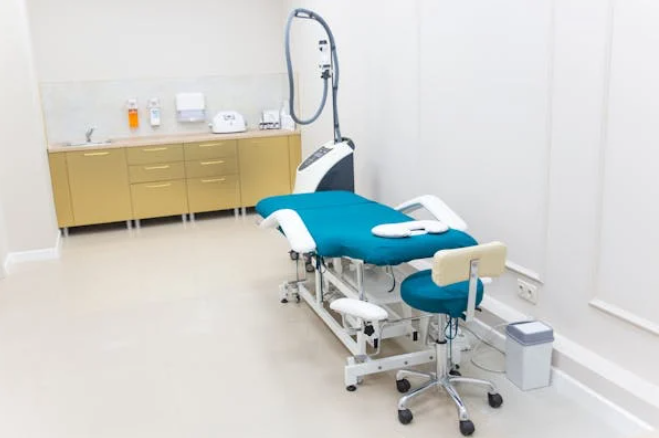
Mental health is an essential aspect of well-being, especially for children and adolescents. As they navigate the complexities of growing up, it’s important to ensure that they receive the right support and care for their emotional and psychological health. For many families, accessing the appropriate services can be overwhelming. However, specialized programs designed for young individuals offer a range of options to ensure that they get the help they need. At the heart of these services are Child and Adolescent Services, which include a variety of support systems like outpatient clinics, individual and family therapy, therapeutic groups, and mobile crisis teams.
Child and Adolescent Services: An Overview
Child and Adolescent Services are specifically tailored to address the unique needs of younger individuals facing mental health challenges. These services are essential in early intervention, as they provide support during critical developmental years. By addressing mental health concerns early on, children and adolescents are better equipped to cope with life’s challenges, improve their emotional well-being, and prevent long-term mental health problems.
These services focus on a range of issues, including anxiety, depression, behavioral problems, trauma, self-esteem, and difficulties at school or home. Through specialized therapy programs and skilled professionals, children and adolescents can receive the right care in a supportive environment.
Outpatient Clinics: Accessible Care for Young Minds
Outpatient clinics are an important component of mental health services for children and adolescents. Unlike inpatient care, which requires hospitalization, outpatient services allow individuals to receive ongoing therapy and support while living at home. This flexible format is especially beneficial for children and their families, as it doesn’t require them to leave their regular environment or school.
Outpatient clinics provide a variety of services, including diagnostic evaluations, therapy sessions, and medication management. These clinics often offer tailored programs to suit different age groups and issues, whether it’s individual therapy for personal challenges or group therapy for more collaborative healing. With regular access to mental health professionals, children and adolescents can manage their mental health in a way that fits into their everyday lives.
Individual and Family Therapy: Healing Together
Therapy is at the core of most child and adolescent mental health services, and both individual and family therapy play key roles in the healing process.
Individual Therapy: Individual therapy allows children and adolescents to explore their thoughts, emotions, and behaviors with a trained therapist in a safe, confidential environment. Whether it’s cognitive-behavioral therapy (CBT), play therapy, or art therapy, these sessions give young individuals the tools to manage emotions, improve coping strategies, and work through difficult situations.
Family Therapy: Family dynamics can significantly impact a child’s mental health, and family therapy focuses on strengthening communication, resolving conflicts, and improving relationships. This form of therapy helps families understand how to support their child or adolescent, fostering a more positive and nurturing home environment.
By addressing both the individual’s mental health needs and the family dynamics, therapy ensures that young people receive the comprehensive support they need to heal and grow.
MH/SU Therapeutic Groups: A Collaborative Approach to Mental Health
MH/SU Therapeutic Groups (Mental Health/Substance Use) are specialized group therapy programs that bring together individuals who are facing similar challenges. These groups provide a space where children and adolescents can connect with their peers, share their experiences, and learn from one another.
Group therapy is especially beneficial for building social skills, improving self-esteem, and reducing isolation. In these settings, young individuals realize that they are not alone in their struggles, which can be incredibly validating. These therapeutic groups might focus on specific issues like anxiety, depression, trauma, anger management, or substance use, providing targeted interventions that help young people build resilience and find strength in community.
Mobile Crisis Teams: Immediate Support in Times of Need
Crisis situations can arise unexpectedly, and when they do, mobile crisis teams provide immediate intervention and support. These teams are composed of mental health professionals who respond quickly to a child or adolescent in crisis. Whether it’s due to an emotional breakdown, suicidal thoughts, or any other mental health emergency, mobile crisis teams ensure that immediate, professional help is available.
The benefit of a mobile crisis team is their ability to meet individuals where they are, offering support in their home, school, or other familiar settings. This approach prevents unnecessary hospitalization and reduces the stress of having to navigate a traditional mental health facility during a crisis. The goal is to de-escalate the situation, provide counseling, and connect the child or adolescent with ongoing support, if needed.
How These Services Benefit Families
Accessing comprehensive mental health services for children and adolescents can significantly impact the well-being of both the individual and their family. By offering a combination of outpatient clinics, individual and family therapy, therapeutic groups, and mobile crisis teams, families can receive holistic care that addresses the emotional needs of everyone involved. These services not only help children and adolescents build emotional resilience but also empower families to be part of the healing process.
For parents, knowing that their child has access to specialized mental health care can provide peace of mind. By fostering an open, supportive environment, families can work together to ensure their child’s emotional health is prioritized, setting the stage for a happier, more balanced future.
Conclusion
In today’s world, mental health is just as important as physical health, and for children and adolescents, receiving the right support early on can make a significant difference in their lives. With services such as outpatient clinics, individual and family therapy, MH/SU therapeutic groups, and mobile crisis teams, children and their families have access to a range of tailored interventions that promote healing and growth. By seeking professional help when needed, families can navigate the challenges of childhood and adolescence together, ensuring that their children have the tools they need to thrive emotionally, socially, and academically.
More Visit: https://freedomhouserecovery.org/service/mobile-crisis-team/